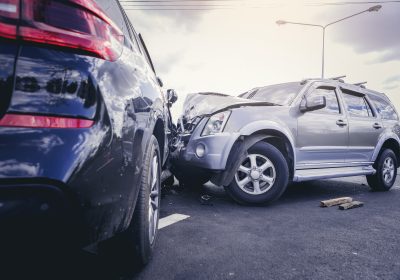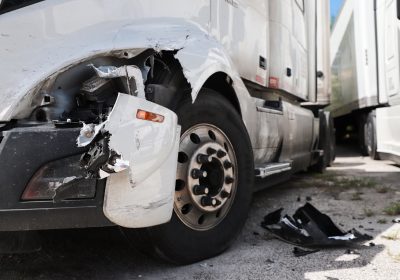Who Can Be Liable in a Truck Accident?
Who Can Be Liable in a Truck Accident?
Being injured in a truck accident changes your life physically, emotionally, and financially. One of the first and most important questions victims ask is: Who’s responsible for what happened? At SAM LAW OFFICE LLC, our lead personal injury attorney has spent years investigating truck accident claims. We’ve seen that these cases are complex because multiple parties may share liability.
A quick answer is that liability in a truck accident may include:
- The truck driver
- The trucking company
- The cargo loaders
- The manufacturer
- Third-party contractors
Let’s break down how liability works and what you should know if you’ve been injured.
How Do Investigators Determine Who’s at Fault in a Truck Accident?
Investigators determine fault by meticulously reviewing evidence from various sources. This process often starts with police reports and witness statements, but for commercial trucks, it goes much deeper. Critical information is often found in the truck’s “black box” data recorder, which tracks speed, braking, and other operational details. Driver logs reveal hours of service, while maintenance records can show a history of neglect. Because of their complexity, truck accident cases frequently require reconstruction professionals and legal guidance to piece together the events leading to the crash and identify all contributing factors.
Can the Truck Driver Be Personally Liable?
Yes, a truck driver can be held personally liable for an accident. This typically happens when the driver’s negligence, such as speeding, distracted driving, or driving while fatigued, directly causes the crash. Drivers are also responsible for following federal safety regulations, and any violation can establish their fault. While the trucking company’s insurance often covers incidents that occur while the driver is “on duty,” the driver’s personal actions remain central to the investigation. Under a legal principle called respondeat superior, the employer is often held responsible for its employee’s actions, meaning both the driver and the company may share liability.
When Is the Trucking Company Responsible?
A trucking company is often responsible for accidents involving its fleet or drivers. The company may be held directly liable for negligent practices like hiring inexperienced drivers, failing to provide proper training, or creating unrealistic schedules that pressure drivers to speed or skip mandatory rest breaks. Poor vehicle maintenance is another common cause of company liability. Furthermore, the concept of vicarious liability makes the trucking company a primary defendant in many cases, as it is legally responsible for its employees’ actions while on the job. Some companies try to avoid this by classifying drivers as “independent contractors,” but courts will examine the actual working relationship to determine true liability.
Could Other Parties Be at Fault, Like a Cargo Loader or Manufacturer?
Yes, parties other than the driver and trucking company can be at fault. If cargo is not loaded or secured correctly, it can shift during transit, causing the driver to lose control or even fall onto the road, making the cargo loading company liable. In other cases, the accident may be caused by a mechanical failure. A tire blowout, brake failure, or steering problem could point to a defect in the vehicle’s design or manufacturing. In that instance, the truck or parts manufacturer would be the responsible party, not the trucking company that properly maintained its vehicle.
What If Multiple Parties Share the Blame?
In Illinois, multiple parties can share the blame for a single accident under the principle of comparative fault. This legal rule allows responsibility, and therefore financial damages, to be divided among all at-fault parties based on their contributions to the incident. For an injured victim, this means you can seek compensation from several sources. A lawyer is critical in these situations to coordinate a thorough investigation and hold every responsible party accountable.
What Should You Do After a Truck Accident to Protect Your Rights?
To protect your legal rights after a truck accident, you should take several immediate steps.
- Get medical care right away, even if you feel fine.
- Report the accident to the police and get a copy of the report.
- Document everything you can with photos and notes.
- Don’t give any recorded statements to insurance companies without legal counsel.
- Get in touch with a personal injury attorney as soon as you’re able
- These cases are time-sensitive, and important evidence can disappear quickly.
Understanding Liability Helps You Recover Fully
Truck accident liability is rarely straightforward. Identifying all responsible parties is key to securing the full compensation you need to cover medical costs, lost wages, and pain and suffering.
If you have been injured, contact SAM LAW OFFICE LLC to schedule an initial consultation. Our trusted attorney can investigate your case from every angle and pursue the justice you deserve.
Reviews
Providing Legal
Solutions In An
Equitable &
Cost-Effective Manner
Related Articles
Losing a loved one in a car crash is a life-altering tragedy. In the first hours and days, the shock can feel debilitating; grief, disbelief, and confusion often blend, making…
The thought that your child could be unsafe with their other parent can feel unbearable, leaving you anxious and unsure of what steps to take. Maybe a friend, family member,…
Being injured in a truck accident changes your life physically, emotionally, and financially. One of the first and most important questions victims ask is: Who's responsible for what happened? At…

 Pay Online
Pay Online


